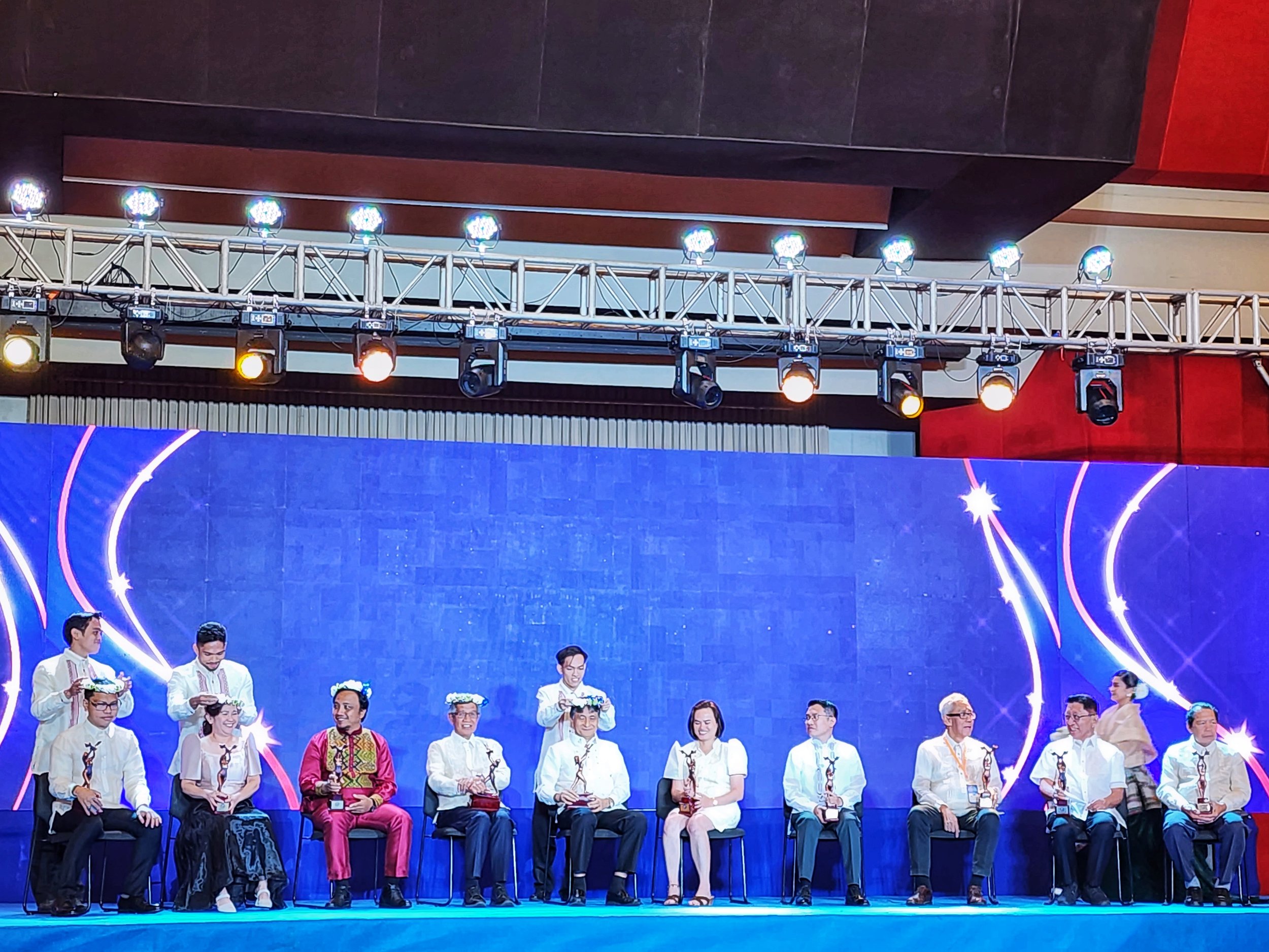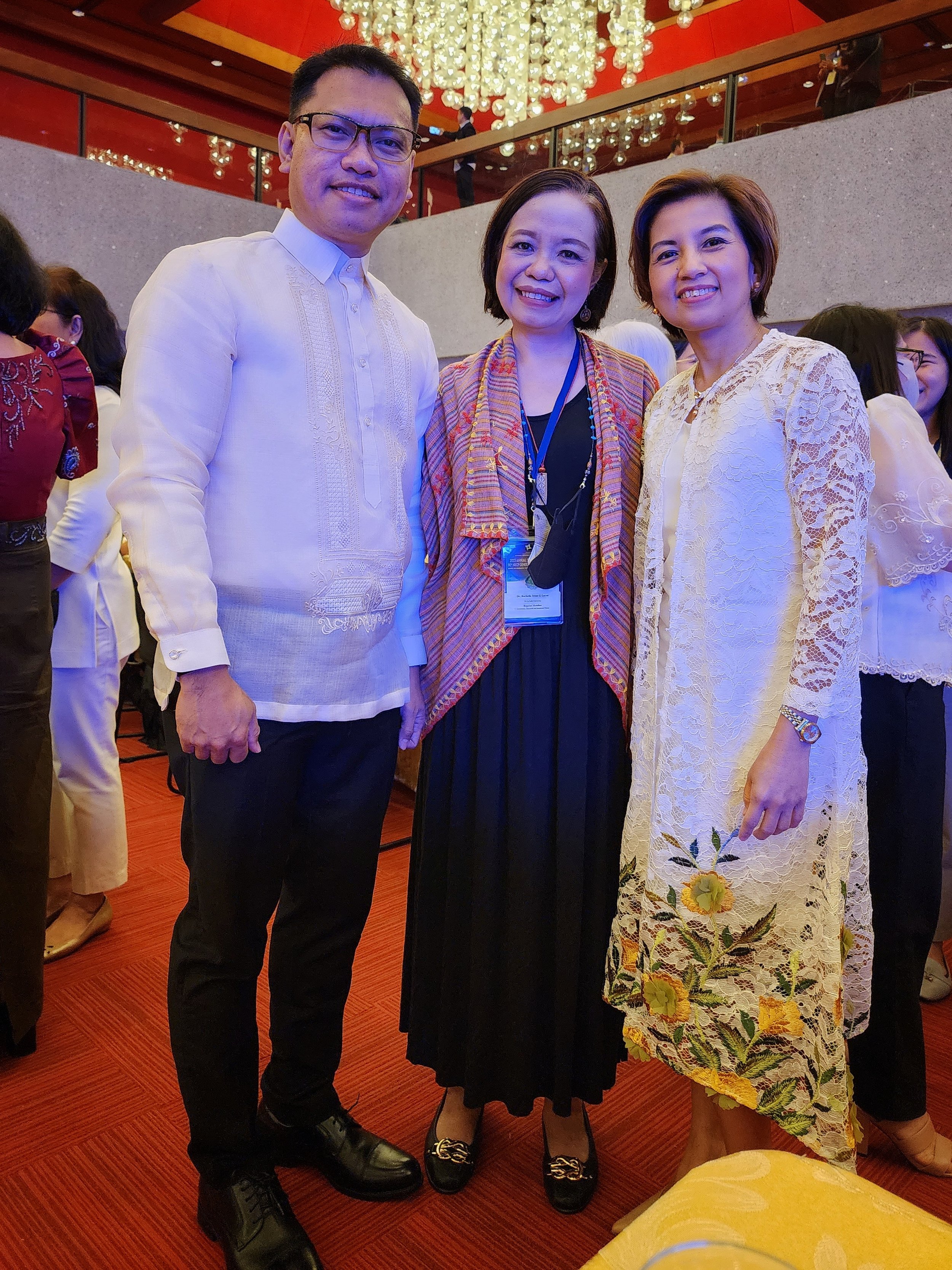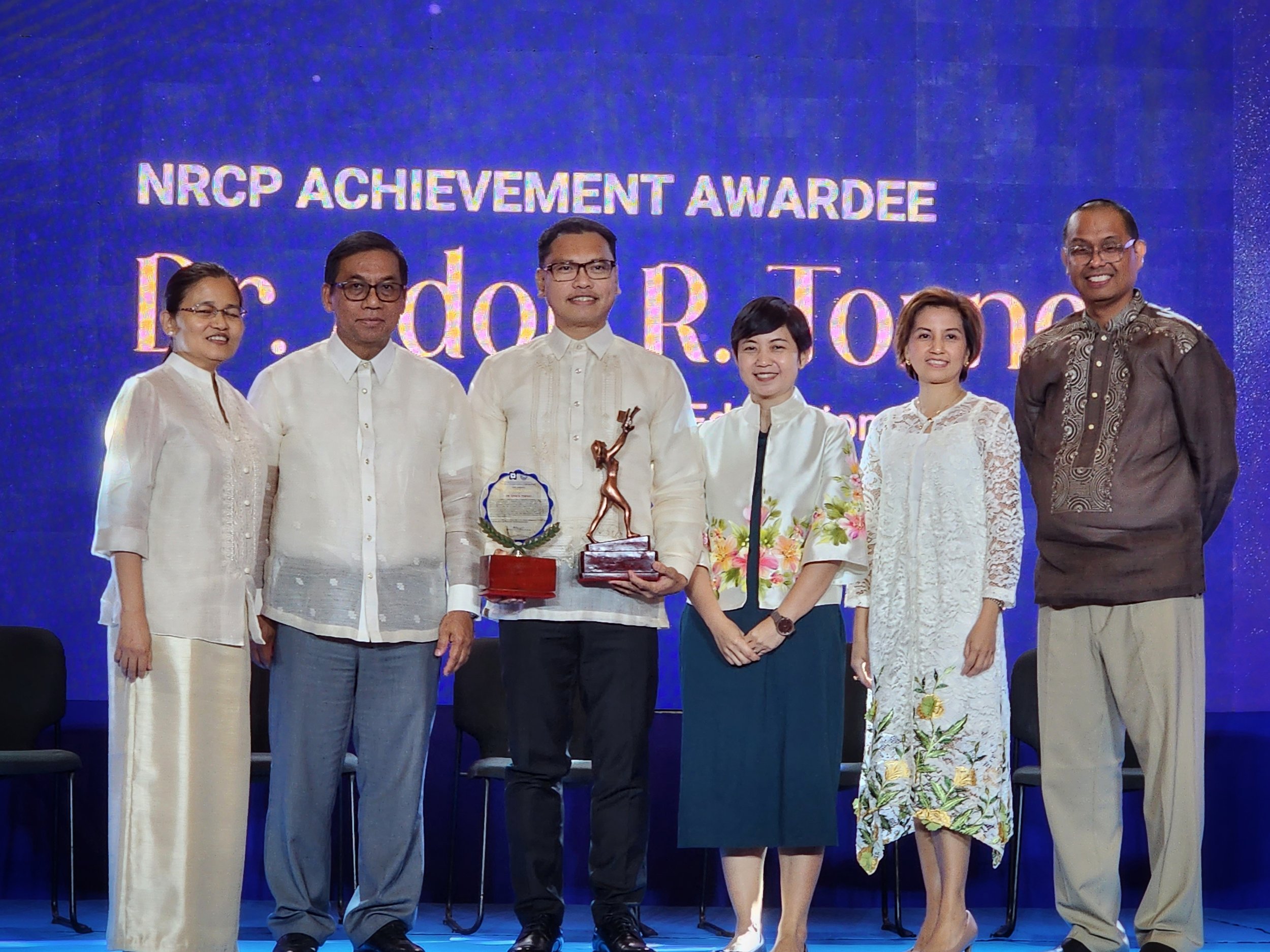Manila, Philippines – La Salle Institute of Governance (LSIG) Director Dr. Ador R. Torneo received the prestigious 2022 Achievement Award for the Division of Governmental, Educational, and International Policies of the National Research Council of the Philippines (NRCP) during its 2023 Scientific Conference and 90th General Membership Assembly on March 10–11, 2023, at the Philippine International Convention Center in Pasay City, Manila.
In photos (far left) LSIG Director Dr. Ador R. Torneo receives the prestigious 2022 NRCP Achievement Award for the Division of Governmental, Educational, and International Policies, with other fellow awardees
In photos (left to right) The NRCP Achievement Awardees, LSIG Director Dr. Ador Torneo (2022), Dr. Rochelle Irene Lucas (2021), Dr. Marie Paz Morales (2019)
The NRCP Achievement Award is the most prestigious award granted by the Council to its members who have made significant accomplishments in areas such as natural sciences, health sciences, engineering, industry, social sciences, humanities, and other disciplines. Over the last fifty years, this award has commended exceptional scientists and researchers in the Philippines, acknowledging their remarkable contributions to the nation's development.
Dr. Torneo was recognized for his productivity and quality of scholarly work, inspiring young academics, researchers, artists, and scientists in their chosen fields.
Key officials such as DOST Secretary Dr. Renato Solidum, Jr., NRCP President Dr. Cristine Villagonzalo, NRCP Executive Director Dr. Bernardo Cepeda, and NRCP Division I Chair Marie Paz Morales led the awarding ceremonies, which also recognized the achievement of distinguished scientists and researchers from various academic disciplines. President Ferdinand R. Marcos, Jr. also graced the occasion to congratulate and commend the awardees.
In photos (left to right) NRCP President Dr. Cristine Villagonzalo, DOST Secretary Dr. Renato Solidum, Jr., LSIG Director Dr. Ador Torneo, his wife Hiyas S. Clamor-Torneo, NRCP Division Chair Dr. Marie Paz Morales, NRCP Executive Director Dr. Bernardo Sepeda
Established in 1933, the NCRP is the oldest scientific research organization in the Philippines and serves as the official adviser on scientific matters to the Government of the Philippines.
The event was attended by more than two thousand participants from various fields and was conducted as a hybrid event, allowing attendees to join both in person and online.





